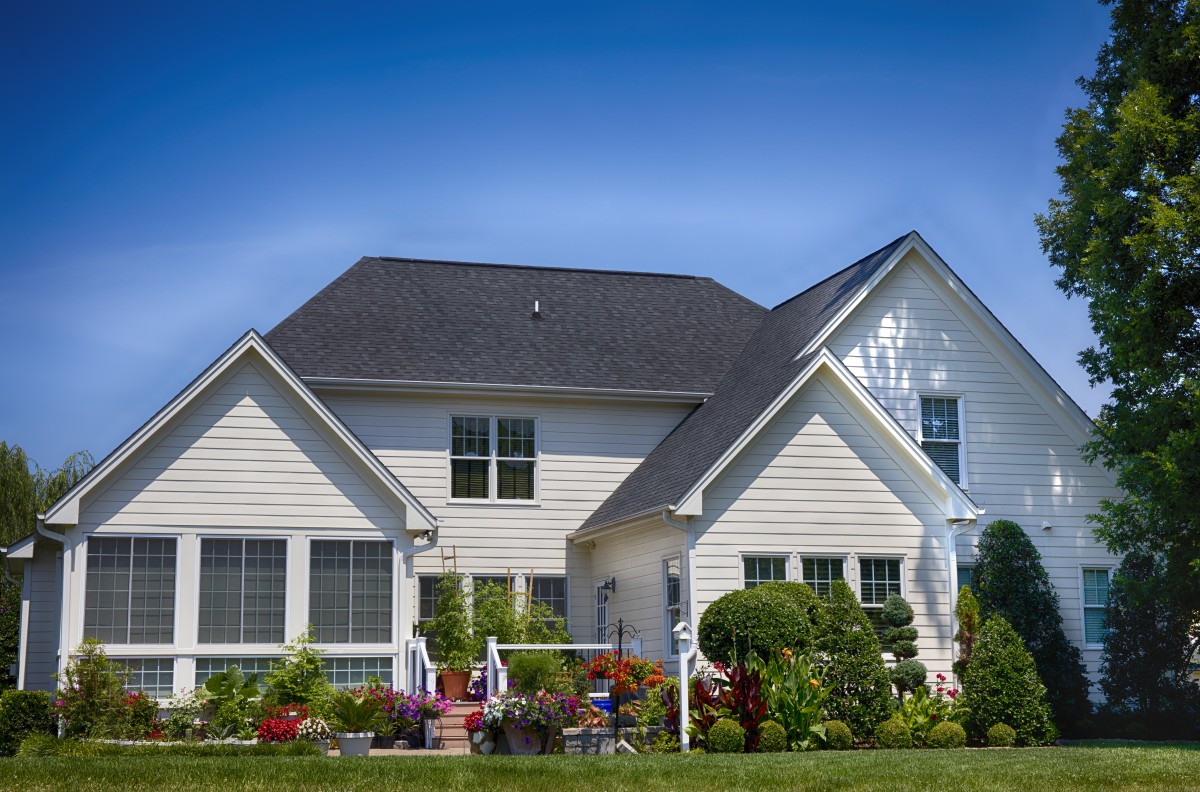As we point out in our post on Defeating Smart Criminals, part of our job involves attempting to think like a burglar. Doing so allows us to make our customers’ homes as secure as possible. In this post, we look at the one of the most often-overlooked areas regarding security preparations: the basement. We find basement security lacking for several reasons. For one, homeowners often tell us: “I don’t keep anything important down here.” Even if true, this statement doesn’t address the fact that an unsecured basement provides easy access to the rest of the home. Additionally, basement access points are often designed differently than most exterior doors and windows. Therefore, when customers design security systems, they usually do so without considering how to secure basement entry points.
We will begin this post with an exploration of why burglars break into basements. With other options available, why break into a difficult-to-enter basement that likely contains little or no valuables? After answering this question, we’ll look at a some options for shoring up your basement security. These tips include proactive measures that make your basement a less likely target for a break-in to begin with. They also include measures that will send for help in the case of an actual basement breach. Let’s start by discussing why burglars consider breaking into basements in the first place.
What Makes the Basement a Tempting Break-in Point?
Basements may not seem like anyone’s ideal entry point into a home. For this reason, security system customers often pay basements very little attention. Of course, this helps explain their appeal to potential burglars. Basements offer a few advantages for potential thieves. For one, they have very little chance of confrontation upon entering a basement. When we addressed Avoiding Common Security Mistakes, we pointed out that burglars prefer avoiding confrontation. In that post, we discussed the importance of not advertising any extended absences from home. However, burglars who do not know for sure if a house is occupied often attempt to break in through an entrance that is unlikely to put them face to face with a home’s residents. From there, they can determine if anyone is home. Better than any other area of a house, the basement provides this opportunity.
Additionally, items found in the basement can act as potential weapons in the case of a confrontation. Items housed in the basement often include tools that could prove dangerous in the wrong hands. The ability to prepare for confrontation, combined with the added knowledge that they will not likely face anyone immediately upon entering the home, can attract thieves to basements over more habitable areas of the house. However, we do offer several solutions to alleviate these dangers. Let’s take a look at how we can make your basement less attractive to potential criminals.

Allowing shrubbery to cover your basement windows could make them a potential target for burglars.
Keep Areas Around Your Basement Windows Visible at All Times
Keeping a well-groomed and well-lit yard shows up as a general security tip in our post on Yard and Driveway Security. This security tip does not just apply to keeping first-floor windows visible. Basement windows obscured by shrubbery, long grass, or located behind a fence can also compromise your basement security. We recommend making basement windows visible from all parts of your yard. You can start by keeping grass and shrubbery around these windows short and well-groomed. If you have basement windows in a garden and cannot avoid obscuring these windows, consider planting thorn-bearing bushes near the windows to make them less attractive to approach.
Adding lighting around basement windows and bulkhead doors can also scare off would-be thieves who do not wish to be seen. You can install permanent exterior lighting if desired. If this option seems drastic, you can consider motion-based lighting or garden lights installed on the ground. Whatever your method, the level of threat provided by your basement windows decreases as the level of visibility increases. Taking steps to make your basement less attractive at first glance will help add basement security. In addition, let’s also look at some ways to make forcible entry into your basement more difficult.
Make Your Basement Difficult to Enter

Adding hardware to basement windows, such as these security bars by Emart Factory Corps, can make basement entry points much less attractive to burglars.
Not many people open their basement doors and windows regularly. For this reason, many homeowners do not give much thought to the basement doors and windows that they install. In particular, we recommend taking care to secure the door at the bottom of your bulkhead stairway. Many people do not install a deadbolt or sturdy locking equipment on this door. Burglars know this, and many of them choose to break into a bulkhead and work in the relative privacy of a basement staircase to get inside their victims’ homes. We recommend following our Door Security Tips for these doors, even if you never plan using your own basement door. Many homeowners also install basement door security bars for extra security.
Additionally, you have several options to help secure your basement windows. Unfortunately, modern basement windows generally come with cheap locks and easy-to-break glass. Installing new window locks and basement window security bars make these windows much less enticing to criminals. Window covers and security films also create a low-cost deterrent. Remember, doors and windows that you consider “out of sight, out of mind” are the very places that burglars gravitate towards. In addition to making a basement more difficult to enter, the added threat of a police response to a break-in attempt goes a long way towards thwarting burglary attempts. Let’s take a look at how we address basement security for our alarm customers.
Add Proper Security Equipment
When designing a security system, homeowners often attempt to add additional equipment where they store their valuables. Of course, we always recommend thinking about what’s most important to you first. However, your valuables have a better chance of surviving a burglary if a siren sounds the moment the break-in occurs. Once your valuables are within sight of a criminal, a motion detector activating an alarm will not save them. For this reason, we recommend securing your basement entry points to ensure an immediate alarm response. We have a few options for adding alarm coverage for your basement.

Basement barrier bars, such as this model by Interlogix, activate your security system if someone climbs through a basement window.
Installing motion detectors can provide the most efficient coverage for basement windows. If you have an open basement, one motion detector can often provide an almost instant alert to a basement intruder. Adding basement barrier bars (pictured) provides an even greater level of security. We install these contacts across the middle of your basement window, making it impossible for an intruder to enter without bumping the barrier bar and activating the security system.
Finally, consider setting up basement doors to send an alert when opened. In our post on Unconventional Uses for Contact Sensors, we discussed the benefit of setting up certain contacts to create an alert at all times. Using an interactive cellular dialer to monitor your alarm, such as ours powered by Alarm.com, allows you to make this happen. If you never expect your basement door to open, you can receive an alert when someone opens the door even if your security system is disarmed. From there, you can check on the situation. If you are suspicious, you can also use your phone to activate a panic response. The ability to track access to your basement and prompt an immediate police response creates both peace of mind and security.
Creating a Full Plan for Better Basement Security
We hope that this post has given you some specific ideas for improving basement security at your own home. The fact that this area is often an afterthought to homeowners can make it an easy target for a burglar. If you have any questions about these tips, basement security, or home security in general, do not hesitate to contact us. We provide free site surveys for homeowners. While there, we will assess your concerns and make our own recommendations as well. We will work with you to make sure your basement — and all other areas of your home — remain as safe and secure as possible.
